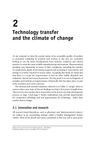 4 citations,
January 2022 in “Drug design, development and therapy”
4 citations,
January 2022 in “Drug design, development and therapy” Intramuscular corticosteroids are effective and safe for severe alopecia areata, with most patients regrowing hair, but nearly half may relapse.
 February 2021 in “Journal of pharmaceutical and biological sciences”
February 2021 in “Journal of pharmaceutical and biological sciences” No cure exists for alopecia areata, and treatments are personalized.
 April 2024 in “Frontiers in pharmacology”
April 2024 in “Frontiers in pharmacology” Brepocitinib 30mg is most effective for moderate-to-severe alopecia areata, but ritlecitinib 50mg may offer a better balance of safety and effectiveness.
 September 2024 in “Journal of the American Academy of Dermatology”
September 2024 in “Journal of the American Academy of Dermatology” Botulinum toxin is not effective for treating male hair loss.
48 citations,
April 2021 in “Journal of the American Academy of Dermatology” Topical corticosteroids are the best initial treatment for children's alopecia areata.
 January 2023 in “Journal of cosmetic dermatology”
January 2023 in “Journal of cosmetic dermatology” Fractional lasers effectively treat alopecia areata, especially when combined with minoxidil or cortisol.
40 citations,
June 2021 in “Clinical, cosmetic and investigational dermatology” JAK inhibitors show promise in effectively treating hair loss from alopecia areata.
 July 2022 in “المجلة العراقية للصيدلة”
July 2022 in “المجلة العراقية للصيدلة” Azelaic acid 20% cream works well for treating scalp alopecia areata and can be an alternative to clobetasol ointment.
136 citations,
April 2010 in “British Journal of Dermatology” Acitretin is effective for severe skin conditions but has significant side effects and requires careful monitoring.
33 citations,
July 2007 in “Journal of cell science” Miz1 is essential for proper hair structure and growth.
 8 citations,
August 2021 in “Fertility and Sterility”
8 citations,
August 2021 in “Fertility and Sterility” Treatments for enlarged prostate can cause problems with ejaculation, and less invasive options might preserve sexual function better.
6 citations,
May 2021 in “Aesthetic Surgery Journal” Higher cell number PRP improves hair density and diameter more than lower cell number PRP.
 4 citations,
January 2023 in “Frontiers in Immunology”
4 citations,
January 2023 in “Frontiers in Immunology” Shorter telomeres in white blood cells may increase the risk of a common type of hair loss.
 August 2023 in “Journal of Education, Health and Sport”
August 2023 in “Journal of Education, Health and Sport” Combining conventional and Chinese herbal medicine could help treat some skin and hormone-related diseases.
 11 citations,
April 2013 in “Hormones”
11 citations,
April 2013 in “Hormones” New information suggests that metformin might help more women with PCOS and infertility, not just those with glucose issues.
4 citations,
March 2022 in “Pharmaceutics” Regenerative cellular therapies show promise for treating non-scarring hair loss but need more research.
 1 citations,
July 2022 in “PLOS ONE”
1 citations,
July 2022 in “PLOS ONE” The study concluded that people with Lichen Planopilaris have a more diverse scalp bacteria and different metabolic pathways compared to healthy individuals.
January 2024 in “Medicina” Statins may help treat PCOS by lowering androgen levels and improving cholesterol.
Gushen Shengfa pills and Wuling capsules are more effective for hair growth and sleep quality than the control treatment.
 October 2024 in “Skin Appendage Disorders”
October 2024 in “Skin Appendage Disorders” PRP is popular for hair restoration but needs better research methods to confirm its effectiveness and safety.
5 citations,
August 2022 in “Mediators of Inflammation” Combining Pulsed Dye Laser with Pingyangmycin is effective and safe for treating acne scars.
 August 2015 in “Dermatologica Sinica”
August 2015 in “Dermatologica Sinica” Men with severe hair loss may have poorer sperm quality.
 34 citations,
July 2011 in “Journal of Dermatological Treatment”
34 citations,
July 2011 in “Journal of Dermatological Treatment” Curcuma aeruginosa extract combined with minoxidil effectively treats male-pattern baldness.
 2 citations,
August 2022 in “Reproductive Biology and Endocrinology”
2 citations,
August 2022 in “Reproductive Biology and Endocrinology” Magnesium supplements improved quality of life for women with polycystic ovary syndrome, but didn't help with acne, hair loss, or abnormal bleeding.
1 citations,
January 2022 in “Journal of Cancer Therapy” Ocoxin improves quality of life for advanced ovarian cancer patients on chemotherapy.

The document concludes that a Quality Management System is crucial for maintaining product quality through innovation and proper technology transfer in the pharmaceutical industry.
 30 citations,
February 2003 in “Annals of Neurology”
30 citations,
February 2003 in “Annals of Neurology” Progesterone and related compounds may help control seizures linked to the menstrual cycle but have limitations that need addressing.
 2 citations,
February 2003 in “Annals of Neurology”
2 citations,
February 2003 in “Annals of Neurology” Neuroimaging suggests that treatments targeting brain steroids could help control epilepsy, especially types linked to the menstrual cycle.
 252 citations,
April 2009 in “Seminars in Cell & Developmental Biology”
252 citations,
April 2009 in “Seminars in Cell & Developmental Biology” The immune system plays a key role in tissue repair, affecting both healing quality and regenerative ability.
 46 citations,
January 2008 in “Climacteric”
46 citations,
January 2008 in “Climacteric” Testosterone therapy can help improve sexual desire and function in postmenopausal women but may cause side effects and is not FDA-approved for this use.



















